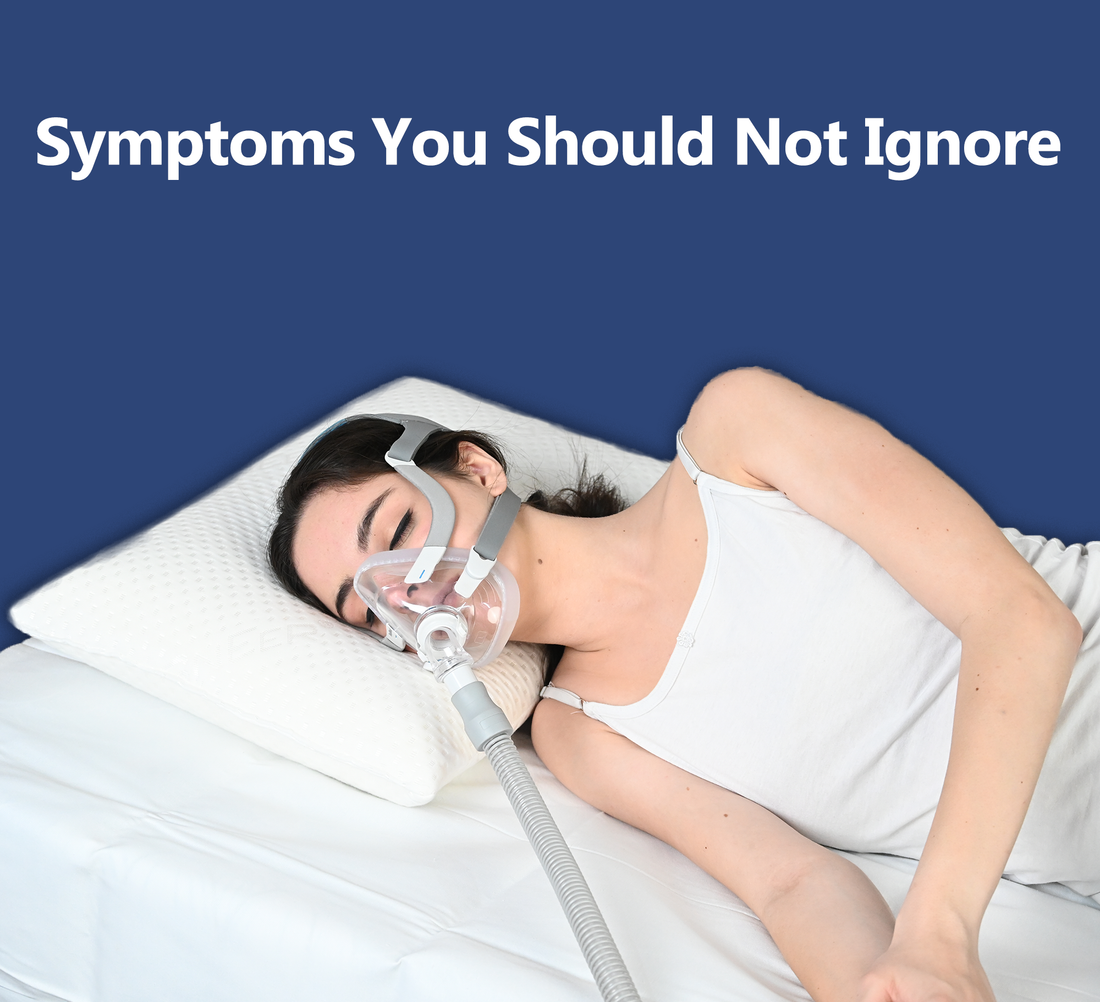
Women: Symptoms You Shouldn’t Ignore
Share
Sleep Apnea in Women: Symptoms You Shouldn’t Ignore
When most people think about sleep apnea, they imagine loud snoring and middle-aged men struggling with sleep. But here’s the reality — sleep apnea affects women too, and often in ways that are harder to detect. Because the symptoms in women can be subtler, they’re frequently overlooked or misdiagnosed as stress, anxiety, or even hormonal changes.
If you’re a woman experiencing poor-quality sleep, fatigue, or mood swings, it’s worth understanding the signs your body might be giving you.
🎥 Watch this quick video to learn more:
https://youtube.com/shorts/j8Fg0nNRv9M?si=xOxqMw9pGmiCc5ZI
Why Sleep Apnea is Different in Women
Sleep apnea is a condition where breathing repeatedly stops and starts during sleep. In men, it’s often loud and obvious. In women, however, symptoms can be quieter, less dramatic, but equally harmful. Hormonal changes — especially during pregnancy, menopause, or post-menopause — can increase the risk.
Key Symptoms You Shouldn’t Ignore
1. Persistent Fatigue and Daytime Sleepiness
You’re getting 7–8 hours in bed but still wake up exhausted. That’s because sleep apnea interrupts deep sleep stages, leaving you feeling drained.
2. Morning Headaches
Interrupted breathing can cause oxygen drops during the night, leading to headaches upon waking.
3. Insomnia or Restless Sleep
Instead of loud snoring, many women with sleep apnea experience frequent awakenings or trouble falling asleep at all.
4. Mood Swings, Irritability, or Depression
Poor-quality sleep directly affects brain chemistry, which can lead to increased anxiety, low mood, and difficulty focusing.
5. Light Snoring or Pauses in Breathing (Not Always Loud)
Even soft snoring or subtle breathing pauses can be a red flag, especially if a partner notices them.
6. Weight Changes and Hormonal Fluctuations
Sleep apnea can make it harder to manage weight due to changes in metabolism and stress hormone levels.
The Risks of Ignoring Sleep Apnea
Untreated sleep apnea in women doesn’t just lead to fatigue — it can contribute to heart disease, high blood pressure, type 2 diabetes, and even memory problems. Over time, lack of proper rest can impact every area of your health.
How CPAP Therapy Can Help
A CPAP (Continuous Positive Airway Pressure) machine is one of the most effective treatments. It delivers a steady stream of air while you sleep, keeping your airways open and preventing breathing interruptions. Many women notice better energy, mood, and focus within just a few weeks of starting CPAP therapy.
When to See a Doctor
If you notice any of these symptoms — especially persistent fatigue, headaches, or restless sleep — don’t ignore them. Talk to a sleep specialist and consider getting a sleep study done. The earlier sleep apnea is diagnosed, the easier it is to manage.
✅ Final Thoughts:
Sleep apnea in women is underdiagnosed because symptoms can be subtle. By recognizing the signs early, you can protect your health, improve your sleep, and regain your energy. Don’t ignore the whispers your body is sending you.
